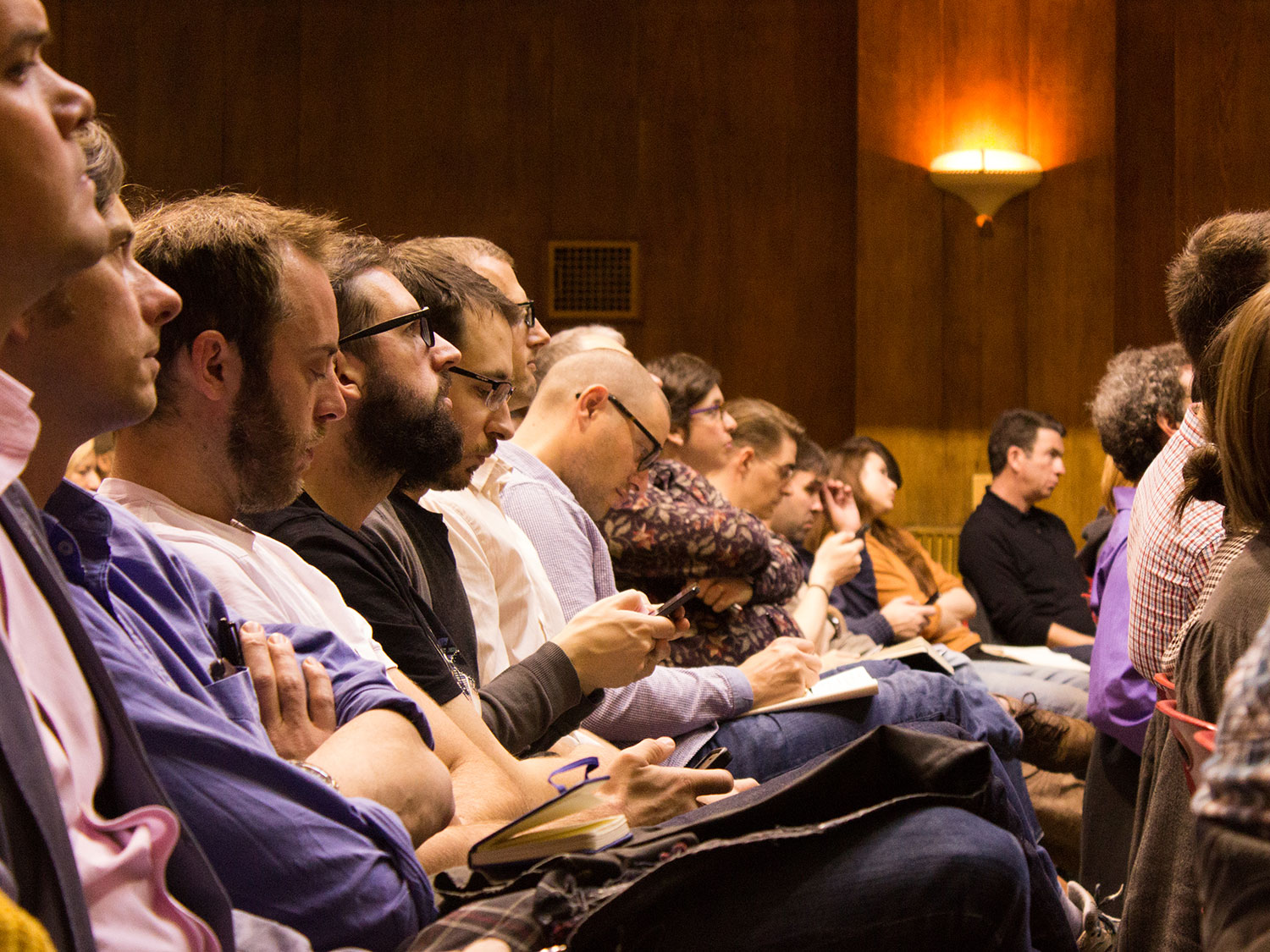Notes from Playful 2011
Gamers, designers and technologists convene to examine the power of ‘play’ at Mudlark’s annual event.

Science fiction writer Al Robertson opened the bill, evangelistically banging the gong for his genre with a compelling list of its successes: Star Trek’s racial conscience; Battlestar Galactica’s allegorical engagement with the war on terror; James Tiptree Jr’s exploration of gender identity; HP Lovecraft’s assessment of the human race as, cosmically speaking, pointless. It was a reminder of the creative power of opening oneself up to other worlds as a method of clarifying one’s feelings about earthbound issues.
Clearly this tangental thinking was shared by some of the puckish and brilliant gaming showcased by different speakers, best of all being Emil Overmar’s company Toca Boca, whose touchscreen games allow children to open up worlds of play that are usually denied them on the learning-focused likes of the iPad: driving, cutting hair, cooking, shopkeeping. These games were so charming and unpatronising that they would make even the most child-hostile iPad owner somewhat broody. Elsewhere, former Future Human guest Brendan Dawes was hilarious on his endless desire to make and create, Georgina Voss illuminating on the consensual play inherent to sadomasochistic sex, and a quartet of illustrators kept proceedings buoyantly playful with their illustration-offs (pictured below), Gemma Correll ultimately emerging victorious.
Louise Downe made perhaps the most insightful comment of the afternoon when talking about LA Noire, the hardboiled videogame story in which you have to detect deceit in the game’s characters by monitoring their faces for signs of untrustworthiness. Rather than approaching them as you would a human in the same situation, instead you try to second guess the machine perspective: what would this game do if it was trying to make a human face look deceitful? By attempting to bridge the gulf between humanity and computing, LA Noire’s creators actually takes you out of the narrative – it’s a cautionary tale for anyone designing computer-human interactions and play. Downe’s work for the Tate meanwhile, including the Tate Trumps game, looked great fun, but underplayed the value of seriousness in culture – for me, games mustn’t be a way of avoiding deep, serious interaction with art. I admit, though, that it’s very difficult to avoid the rock of elitism and the hard place of triviality.
Another failing was that the refreshingly untamed enthusiasm for the future of the above speakers was checked by others – amid a fascinating tour of touchscreen app gaming for children, Chris O’Shea went into a rather conservative aside about the lack of magic inherent to e-readers like the Kindle. Despite showing some great videos of touchscreen-aware toddler attempting to use gestural commands on paper magazines, he nevertheless maintained that childhood literacy was linked to paper and ink, which perhaps underestimates the ability of children to fire their imaginations with whatever medium comes to hand.
This rose-tinting of old media and pop culture extended throughout the day, with speakers lining up to complain that the future that was sold to them in their childhoods didn’t match up with today’s reality. Chief among them was Marcus Brown with his concept of a ‘Middle-Aged Future’, a valid concern that designers and other creatives are too in thrall to the sci-fi imagery of their pasts. But for Brown, absolutely nothing is new, and everything is a rehash of a previous era’s highs, the same retromania defined by Simon Reynolds that wilfully ignores exciting hybrids and completely fresh ideas. Brown’s suggested route out of this supposed creative stagnancy was for designers to think like children, but there is a crucial difference between remembering your childlike wonder at the world and reenacting your childhood idiocy: his alternative sci-fi worlds, without currency and fuel, were woolly and in no way linked to our own. Get out and play with your old toys, yes – but remember everything you’ve learned since you put them away the first time.
Many thanks to Playful for letting us come along to an event that was for the most part hugely inspirational and creatively stimulating. Definitely check out next year’s event when it rolls around, organised as ever by Mudlark.
Photography by Emma Broadhurst

Share
Tweet this Share on Facebook